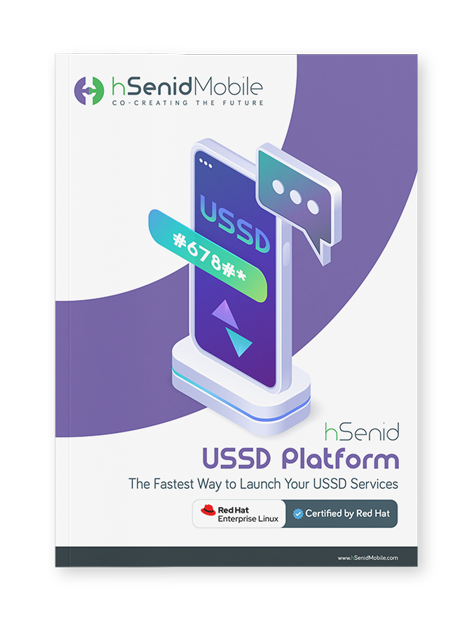In many parts of the world, people reach for their phones—not to open an app, but to dial a quick code like #123#. No internet. No data. Just instant access to services that range from checking mobile balances to transferring money or subscribing to offers.
Behind that short code lies a system doing far more than meets the eye. If you’re wondering about how a USSD gateway works, this is your roadmap into the technology that quietly powers billions of interactions every day.
The Unseen Backbone of Mobile Engagement
Despite the rapid growth of smartphones and data-driven apps, USSD (Unstructured Supplementary Service Data) remains deeply woven into the telecom fabric—especially in regions where smartphones are a luxury and internet access is inconsistent.
USSD allows mobile users to engage in real-time communication with their telecom operators through shortcodes—no app downloads, no internet connectivity needed.
And at the heart of it all is the USSD Gateway. It’s the bridge between mobile users and the services they need. It connects the operator’s core network with various applications like mobile money, surveys, promotions, and even essential services like healthcare access or public alerts.
How a USSD Gateway Works
To put it simply, a USSD Gateway initiates, manages, and terminates the USSD sessions that users interact with on their phones. But its role goes far deeper:
- Session Management: Maintains stateful interactions so users can pick up where they left off, even after a dropped connection.
- Application Provisioning: Manages multiple third-party apps with secure parameters like TPS limits and timeout settings.
- Flexible Billing: Supports both session-based and request-based charging models—ideal for monetizing value-added services.
- REST API Integration: Allows rapid plug-in of external apps and services into the operator’s network, reducing time-to-market.
In essence, the gateway ensures users have a smooth, real-time, and uninterrupted experience, even on the most basic devices.
Why USSD Still Matters in 2025
One might assume that with the rise of mobile apps and 5G, USSD would be obsolete. But the data says otherwise.
According to the GSMA, over 90% of mobile money transactions in Sub-Saharan Africa still go through USSD. In 2024, roughly 8% of the population between ages 16 and 64 were using mobile payment services.
Even in countries pushing forward with digital transformation, USSD remains the most accessible, inclusive technology for:
- Feature phone users
- Low-income populations
- Areas with poor mobile data coverage
As telcos aim to bridge digital divides, USSD continues to serve as a vital entry point into mobile ecosystems—especially where accessibility and simplicity are key.
What Sets Modern USSD Gateways Apart
Today’s USSD Gateways aren’t just infrastructure—they’re intelligent platforms designed for agility, scale, and next-gen technologies.
- 5G Compatibility with IMS Integration: Modern gateways are built to interface with IMS (IP Multimedia Subsystems), enabling seamless support for 4G and 5G environments. No fallback to 3G is required, ensuring faster response times and continuity across networks.
- AI and ML-Powered Personalization: By integrating Artificial Intelligence and Machine Learning, USSD services can now suggest the most relevant menus based on usage history. Instead of navigating through multiple levels, users can simply type keywords and get to what they need instantly.
- Dynamic Menus and Filtering: Advanced gateways support dynamic menus that adapt based on tariff plans, location, balance, or user behavior. These menus can also be personalized using scheduling, bookmarks, and shortcuts, improving usability across the board.
- App Ecosystem Enablement: With RESTful APIs and third-party provisioning features, developers can easily connect apps that offer services ranging from mobile banking and e-commerce to education and health alerts.
Real-World Use Cases That Drive Value
Telcos leveraging robust USSD gateways are unlocking new revenue and engagement channels. Some high-impact use cases include:
- Mobile Recharge & Balance Transfers
- Offer Activation & Subscription Management
- Feedback Surveys & Voting Services
- Callback Requests for Zero-Credit Users
- Location-Based Services and Content Alerts
Because of their simplicity and accessibility, these services see high adoption, even in rural or underserved areas. And thanks to modern menu design tools, operators can create these services without needing deep technical knowledge.
USSD Gateway Explained for Beginners: More Than Just Legacy
Understanding the USSD gateway explained for beginners isn’t just about knowing the mechanics. It’s about recognizing the strategic role this technology plays in driving inclusion, customer engagement, and telecom innovation.
It’s about building scalable, AI-enhanced, and future-ready platforms that deliver impact where it’s needed most.
Whether for banking the unbanked, running national surveys, or launching promotional campaigns in real-time, the USSD Gateway continues to be a cornerstone in the digital services landscape.
Empowering Telcos with the Next-Generation USSD Experience
Experience a revolutionary leap in service delivery with hSenid USSD Suite — the ultimate platform for creating, managing, and launching USSD services rapidly. Built to support 2G through 5G networks, hSenid ensures seamless user access across devices.
With drag-and-drop menu design, dynamic content generation, AI/ML-powered personalization, and IMS-ready 5G compatibility, it’s future-proof and telco-ready.
Say goodbye to downtime and delays, hSenid USSD accelerates your time-to-market while enhancing customer engagement and satisfaction. Upgrade today and redefine your mobile service ecosystem!








